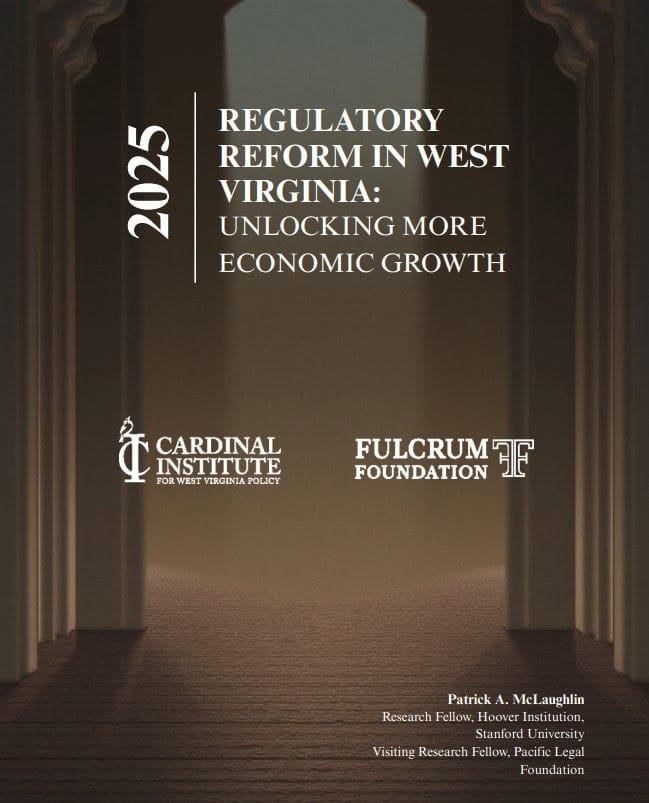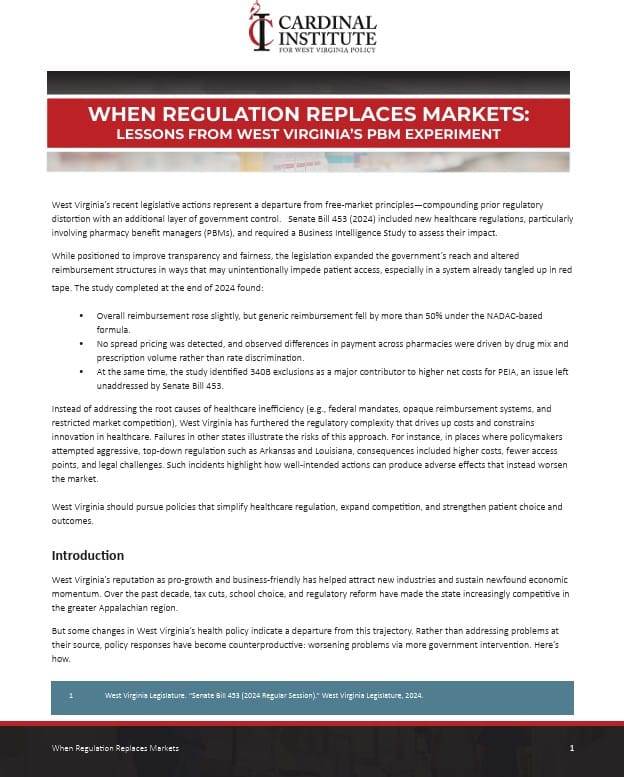
Staggers Rail Act 40th Anniversary
Cardinal Team
Though hard to believe, West Virginia has some interesting history when it comes to paradigm-shifting deregulatory acts.
40 years ago, on October 14, 1980, the Staggers Rail Act was signed into law by President Jimmy Carter – freeing up the freight market from onerous regulation. Representing West Virginia’s 2nd Congressional District, Harley Staggers was a member of the United States House of Representatives for over 30 years and introduced the legislation eventually signed into law by President Carter.
Deregulation is often given a bad name as some claim deregulation allows unbridled capitalism to run amok, allowing robber barons or otherwise unsavory economic actors to trample everything in their respective paths. However, this is a fiction peddled by those unfamiliar – or uninterested – with the beauty of a market connecting supply and demand and the inverse ugliness of inefficient central planning and overregulation.
Prior to the Staggers Rail Act, America’s railroads were on shaky ground. Roughly 20 percent of rail miles were operated by bankrupt railroad companies as rates and services were mandated by government. As one might expect, this led to huge operating inefficiencies, and the results were disastrous. Central planning, of which mandated prices and services are certainly huge components, is inefficient because market signals are not allowed to properly function through the price mechanism. At its most basic level, the Staggers Rail Act allowed rail companies to set their own prices and scope of services.
Prices are a necessary component of a market economy because they serve as a signal to producers and consumers – demand goes up, prices tend to go up and vice versa. When unobstructed by political interference, prices make shortages and surpluses much less likely to occur in any given amount of time. Regardless of industry or economic activity – from surface transportation and manufacturing to technology and food production – prices are the “special sauce” in a well-functioning economy.
This seemingly simple mechanism has allowed free-market economies to thrive, while others, like the centrally-planned Soviet economy, ultimately collapse.
Luckily, a bipartisan consensus understood this simple economic reality, and resisted any urge towards nationalization of the industry, when it passed the Staggers Rail Act (a similar economic reality was understood when the airlines were deregulated two years prior to the Staggers Rail Act).
West Virginia’s Congressional delegation helps oversee this structure to this day.
As proponents of free markets would expect, the results have been overwhelmingly positive, not only for the rail industry itself, which employs over 2,000 people in West Virginia, but also for producers and consumers alike. According to a study in the Journal of Regulatory Economics, freight rail rates (adjusted for inflation) fell by 46 percent between 1982 and 1996, and by 1985, five years after passage of the Staggers Act, delivery times were reduced by 30 percent. Other studies have shown that benefits to shippers were between $2 billion-$6 billion in 1977 dollars. These results are evidence of the government-mandated inefficiencies that were present in the rail industry.
For myriad reasons, calls for increasing regulation on whatever industry that happens to be the bête noire of the day’s political and activist classes are legion and, unfortunately, often go beyond what is reasonable and logical. As the success of the Staggers Rail Act surely shows, societies should resist succumbing to the siren call of ever-increasing regulation.
Sadly, West Virginia’s reputation is that of high levels of regulation and a Charleston-directed economy, but at least for one day nearly 40 years ago, West Virginia’s own Harley Staggers changed American society forever through a simple respect for – and recognition of – the laws of economics.
The laws of economics have not changed in those 40 years, and West Virginia would do well to follow the example set by Congressman Staggers’ eponymous legislation: get government out of the way.
Garrett Ballengee is the executive director of the Cardinal Institute for WV Policy, a nonprofit located in Charleston, W.Va.







